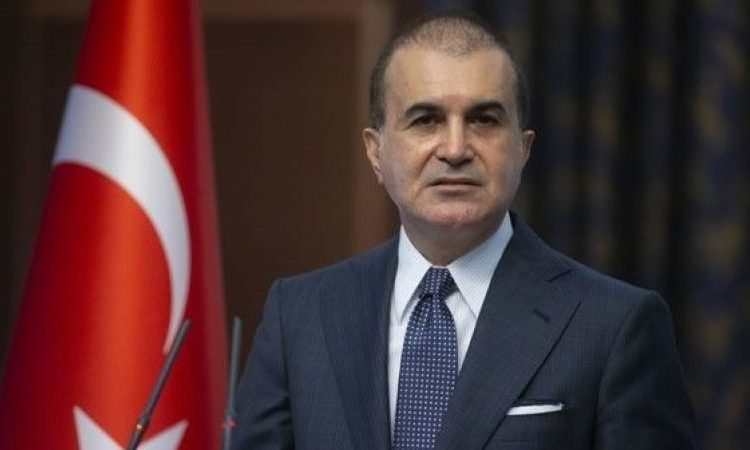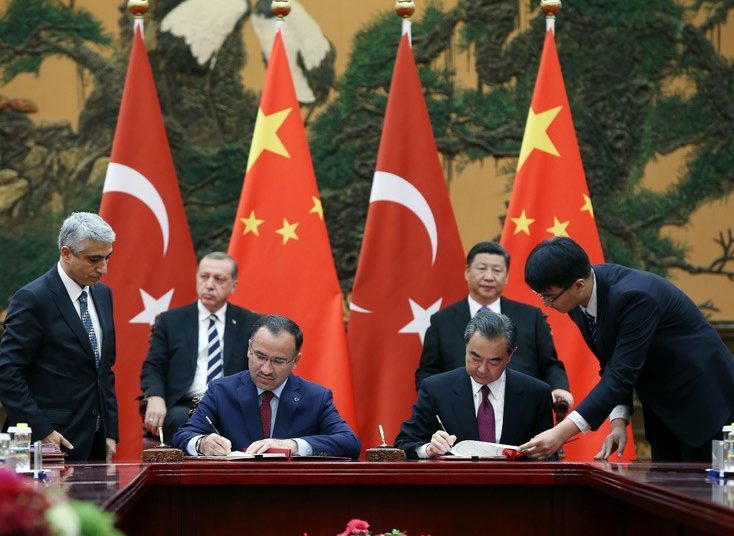Nordic Monitor
Uyghurs who are facing deportation from Turkey to China due to pressure from the Chinese Communist Party were called criminals by ruling Justice and Development Party (AKP) spokesman Ömer Çelik.
Çelik’s remarks revealed the reason behind the recent arrest of Uyghurs living in Turkey. According to analysts, the Turkish government is laying the groundwork for implementation of the Turkey-China extradition treaty signed on May 13, 2017.
Speaking to journalists about the agreement, Çelik said this was just a common extradition treaty that Turkey has signed with various countries. “This is an agreement for the extradition of criminals,” Çelik said.
Turkish opposition parties claim that China withheld shipment of its coronavirus vaccine to pressure Turkey for ratification of the treaty. Yıldırım Kaya, a lawmaker from the main opposition Republican People’s Party, questioned the government, saying, “Are the allegations true that China is postponing vaccine shipments in order to pressure Turkey into ratifying the extradition treaty?” Turkey signed a contract for 50 million doses of the Sinovac Biotech vaccine, which should all arrive by the end of February.
In May 2020 Nordic Monitor released the text of the deal and underlined ambiguous phrases in the treaty that violate international extradition mechanisms.
The Stockholm Center for Freedom, citing Turkish media, reported that Turkish police raided the homes of some Uyghur refugees on the night of January 18 and detained between 10 and 15 of them. In fact, Article 9 of the treaty introduces new rules and authorizes Turkish police to detain Uyghurs before China’s official extradition requests are conveyed to Turkish authorities.
“In case of urgency, either Party may apply for provisional arrest of the person sought before the request for extradition has been transmitted to the Requested Party,” Article 9 states. According to the article, Uyghurs will be detained by Turkish police without a court order.

An estimated 50,000 Uyghurs are believed to reside in Turkey, constituting the largest Uyghur refugee community in the world. Turkey has assisted and defended Uyghurs, who share many cultural and linguistic traits with Turks and have been seen as ethnic brethren by Turkish nationalists for decades. But the AKP has changed this policy in recent years and deported several Uyghurs to China.
According to the Uyghur diaspora in Turkey, the Uyghurs who were detained on January 18 for their alleged ties to terrorist groups have never been involved in terrorist activities.
Amine Bekir, 40, was among the Uyghurs detained. According to her daughter Aliye Bekir, she was first taken to a police station and then to a removal center in the Silivri district of İstanbul. She was released the following night. Abdullah Metseydi, who was working as a tailor in Istanbul, was another Uighur arrested that day.
According to his wife Melike, who spoke to Radio Free Asia’s Uyghur service, the police asked Abdullah Metseydi if he had ever called for jihad against China. He said, “No, I’ve never heard of any such thing.” In response, the police said he would be deported directly to China together with his wife if he was ever involved in any such activity. When she asked when her husband would be back, one of the officers said he would be sent back to China.
Turkey has been a destination for thousands of Uyghurs fleeing China and has become home to a sizable Uyghur diaspora. Recent developments reveal the fact that Uyghurs are no longer safe in Turkey and that scores of Uyghurs might be extradited to China by the government of President Recep Tayyip Erdoğan.

President Erdoğan paid an official visit to Beijing to attend the Belt and Road Forum for International Cooperation on May 13, 2017. Following his meeting with President Xi Jinping, then-Turkish Justice Minister Bekir Bozdağ and Chinese Foreign Minister Wang Yi signed the 22-article treaty, which sets out the framework for extradition procedures.
While the treaty was ratified by China in December, it is still awaiting the Turkish parliament’s approval. In addition to that deal, the justice ministries of both countries also signed a memorandum of understanding (MoU) in November 2018 to enhance judicial cooperation.
Article 2 (2) of the Turkey-China treaty states that “it shall not matter whether the laws of both Parties place the offence within the same category or describe the offence by the same terminology.” According to the article, the parties could request the extradition of its citizens despite the fact that the offense does not fall within the scope of the other party’s relevant laws.
“[T]he offence should be punishable under the laws of both Parties by imprisonment for a maximum period of at least one year or by a more severe penalty,” Article 2 1. states, adding that “the period of sentence that remains to be served by the person sought should be at least six months at the time when the request for extradition is made.”













